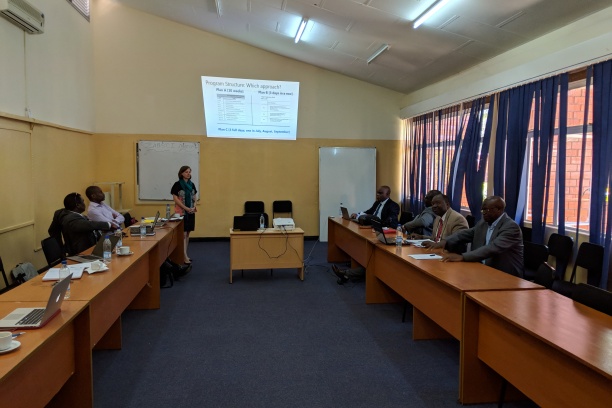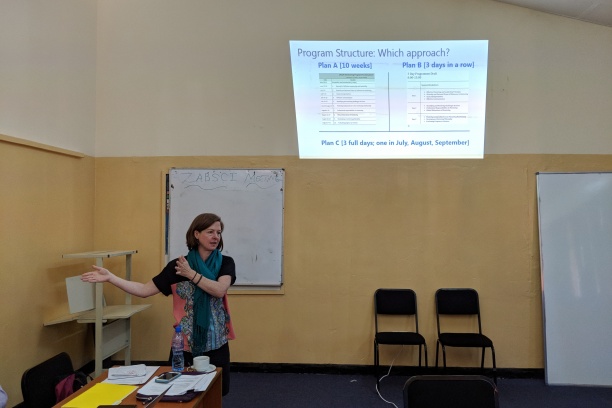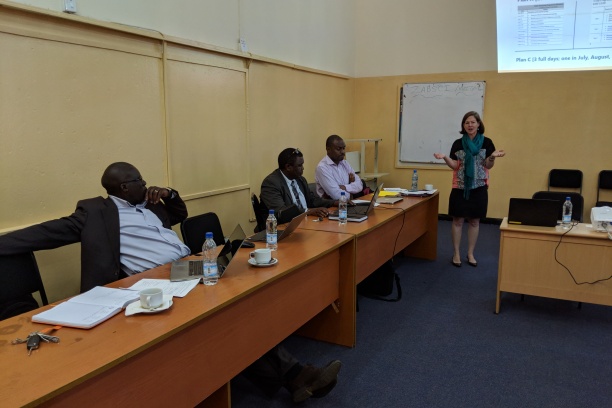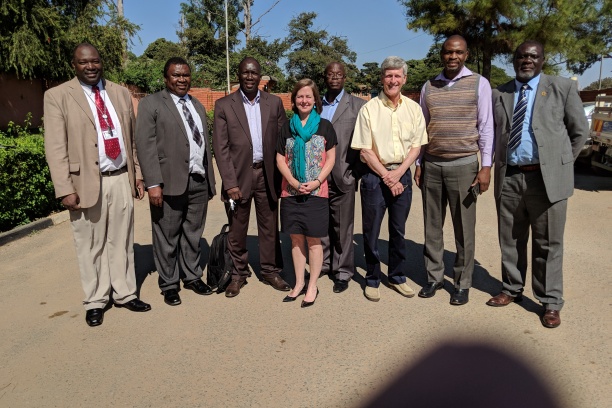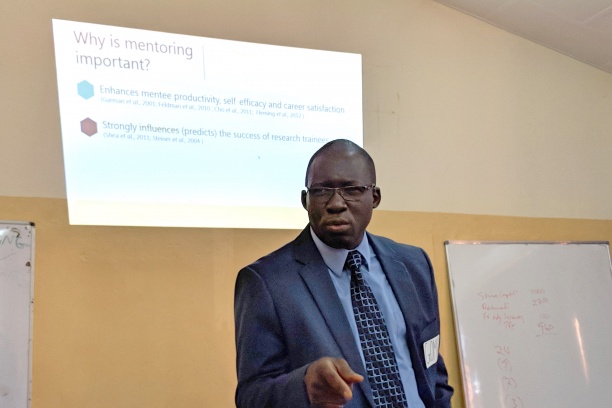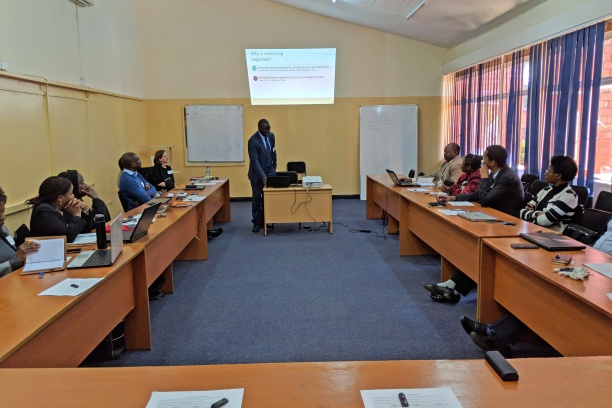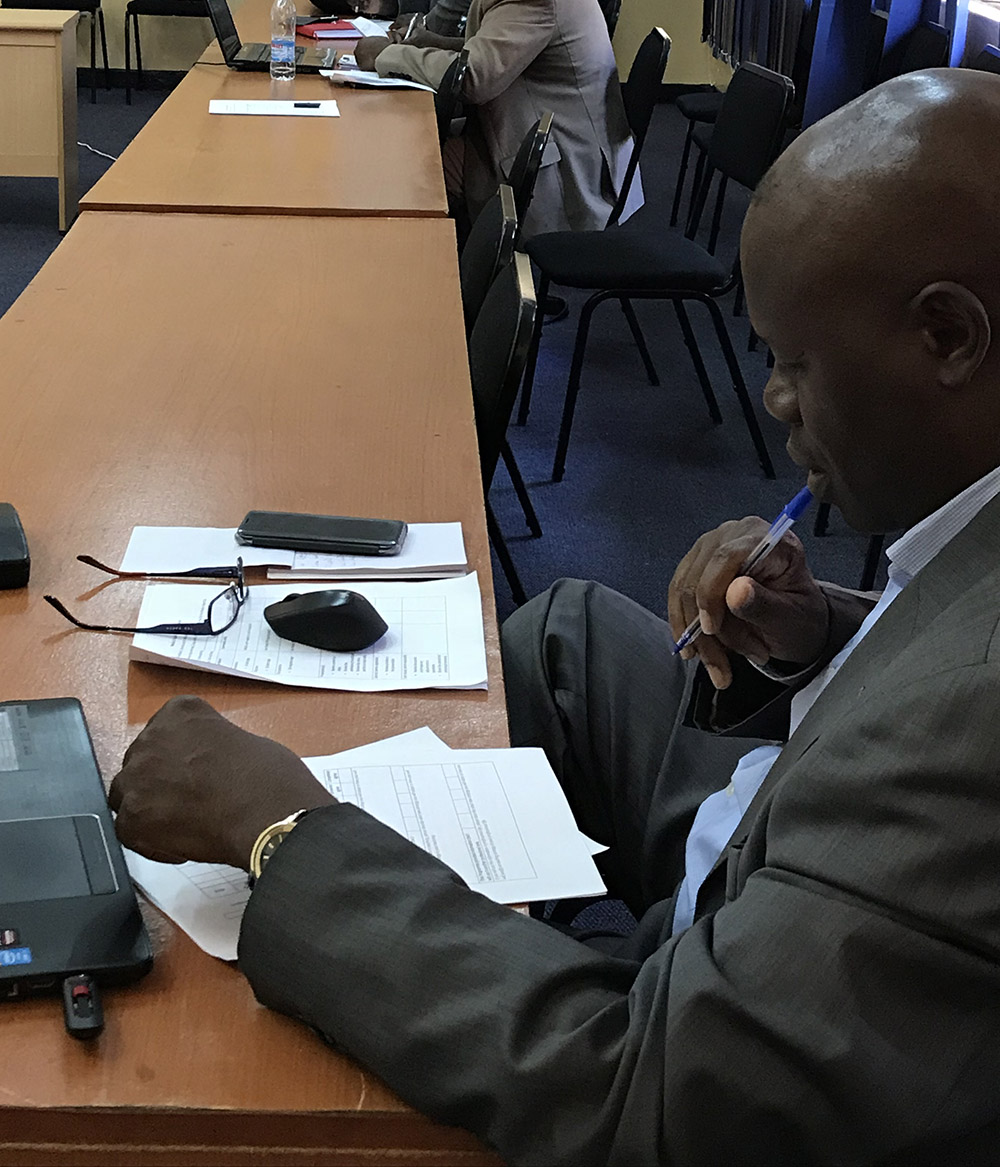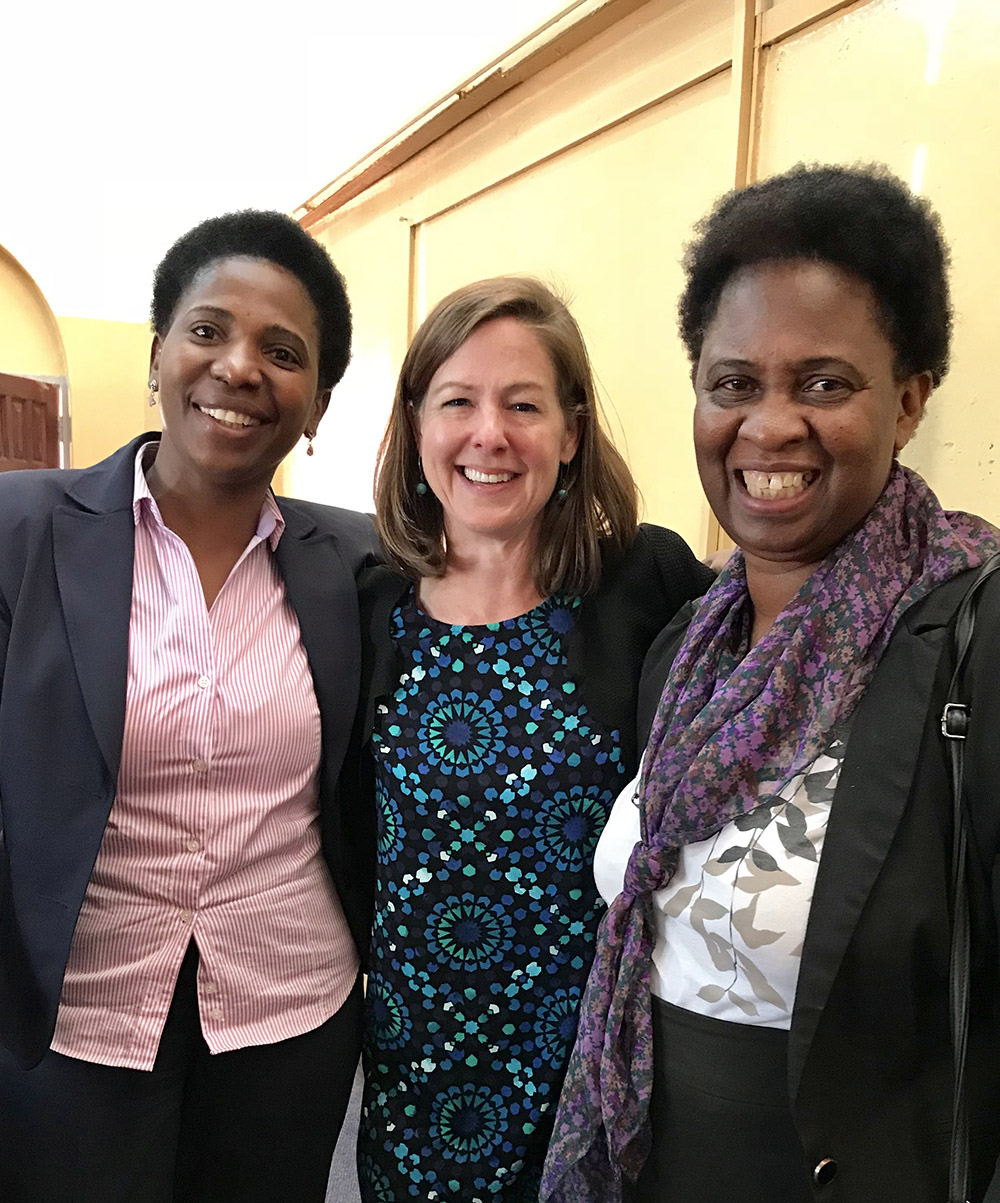"Mentors are teachers but not all teachers are mentors."
Lackson Kasonka, Senior Mentor
The next generation of global health researchers, scientists and practitioners are benefiting from a mentoring program at the University of Zambia (UNZA) in Lusaka with the help of colleagues from the Vanderbilt Institute for Global Health (VIGH) and the University of North Carolina at Chapel Hill, with support from the Fogarty International Center.
The UNZA Mentoring Programme was designed to enhance mentee productivity, improve self-efficacy and strongly influence the success of research trainees making the transition to a distinct career in global health research. The program provides a structured approach to mentoring for senior and junior faculty to better support graduate students at UNZA. It was launched in 2018, and the program’s first cohort of 10 Clayton-Dedonder mentoring fellows graduated after five full-day workshops spanning five months. The program evaluation is slated for completion in June 2019.
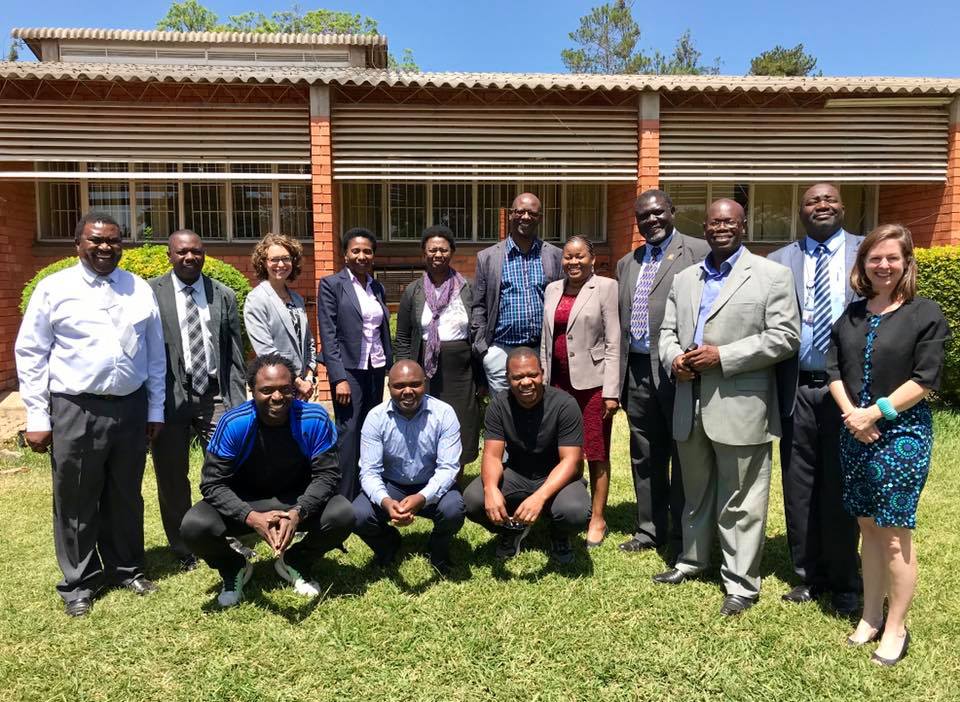
VIGH faculty and staff in collaboration with UNZA faculty developed and implemented this mentoring program with the aim to build institutional capacity through an innovative “train the trainer” faculty development model. In this model that promotes program sustainability, UNZA junior faculty are trained by senior faculty to co-lead the program in subsequent years. Marie Martin, Ph.D., M.Ed., Assistant Director for Education and Training for VIGH developed the curriculum in collaboration with UNZA faculty and directed the initiative.
Two core principles guided this capacity building approach. First, UNZA senior faculty would direct and lead the curriculum development process to facilitate context-appropriateness, ensure sustainability, enhance their knowledge, and hone their own mentorship skills. Second, junior faculty at UNZA would develop mentoring and leadership skills to guide the next generation of graduate students and future faculty at UNZA. A quality improvement framework was used to guide curriculum development, implementation, and evaluation.
This intensive mentorship and leadership training program trains and engages senior faculty members as co-curricular developers while simultaneously sharpening their mentorship skills. The mentoring fellows (junior faculty) and senior faculty represented all four health sciences schools at the UNZA Ridgeway campus. Eleven senior faculty trainers participated in curriculum design and instructional strategies workshops to hone their skills between February and June 2018. They used these skills to develop mentoring workshops for junior faculty mentoring fellows. In all, 11 Senior Mentors and 10 Mentoring Fellows participated in the UNZA Mentorship Programme.
As part of the curriculum, Mentoring Fellows crafted their own Mentoring Philosophy statements. Patricia Katowa-Mukwato, Ph.D., Lecturer and Researcher in the School of Nursing Sciences at UNZA and Mentoring Fellow, noted that the personal guiding statement will keep her focused on her goals for mentoring. She commented that, “Excellence in performance, attitude and outlook” will help keep the mentor/mentee relationship aligned.
The positive outcomes of mentorship for both the mentor and mentee have been well-described in the literature and have prompted the attention of major research agencies like the National Institutes for Health. It has been shown to enhance success of early-career scientists and faculty, and in turn, strengthen leadership skills of senior faculty and academic leadership.
Working toward this goal in 2018, Fogarty offered funding to strengthen mentorship activities and resources for Fogarty HIV/AIDS training programs at existing training sites in low- and middle-income countries through The Clayton-Dedonder Mentorship Fellows Program. This fellowship seeks to enhance the overall culture and practice of mentoring at LMIC institutions.
While strengthening academic mentorship is important in institutions across the globe, it is often challenging for low- to middle-income countries to support formal mentoring initiatives due to limited resources and trained faculty at LMIC institutions. In response, the American Journal of Tropical Medicine and Hygiene published a special supplemental issue on mentoring. It includes articles on guidelines, conceptual framework, ethics, evaluations and toolkits particularly for LMIC institutions.
These articles highlight the role of mentoring in LMICs to advance global health research and the implementation and evaluation of Fogarty-sponsored mentoring workshops in LMICs. Doug Heimburger, M.D., M.S., Associate Director of Education and Trainings for VIGH co-authored two articles included in the supplement on the importance of mentoring and mentorship training programs in LMICs.
Margaret Maimbolwa, Ph.D., Professor of Nursing Science at UNZA and Senior Mentor, embraces the concept of mentoring and acknowledges the lack of awareness to the differences between supervising and mentoring. Maimbolwa said, “The University of Zambia was anchored on the art of supervising the students and rarely used the mentoring word,” adding that mentorship training sessions were key to assuming the role of strong mentor.
Solving complex global health challenges requires experts from all branches of medicine and public health with advanced skills in analysis and ethical research. Formalized mentoring programs help to build the human capacity ready to address global health challenges. These programs require buy-in from institutions, government and individuals for long-term sustainability.
The leadership at the UNZA Ridgeways campus recognizes the inherent value of mentoring and has dedicated time and grant funding to ensure successful mentoring outcomes. They hope to further formalize the relationship between mentor and mentee. VIGH served as the expert educational advisor to UNZA senior faculty, but UNZA led curriculum development and tailored the program curriculum to fit their unique environment. In doing so, they are positioned to expand the program across other schools in the university.
The UNZA Mentoring Program is supported by the National Institutes of Health Fogarty International Center, grant number D43TW009744-04S1.
